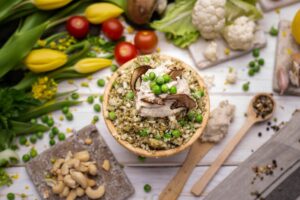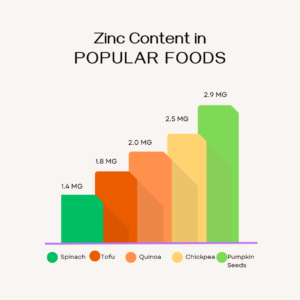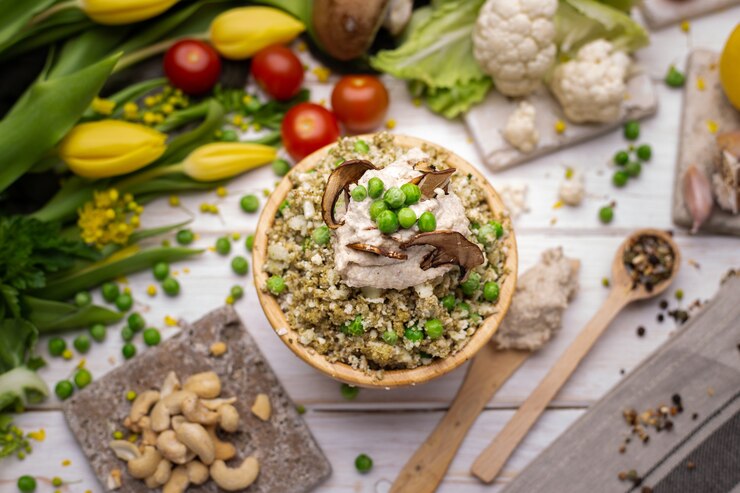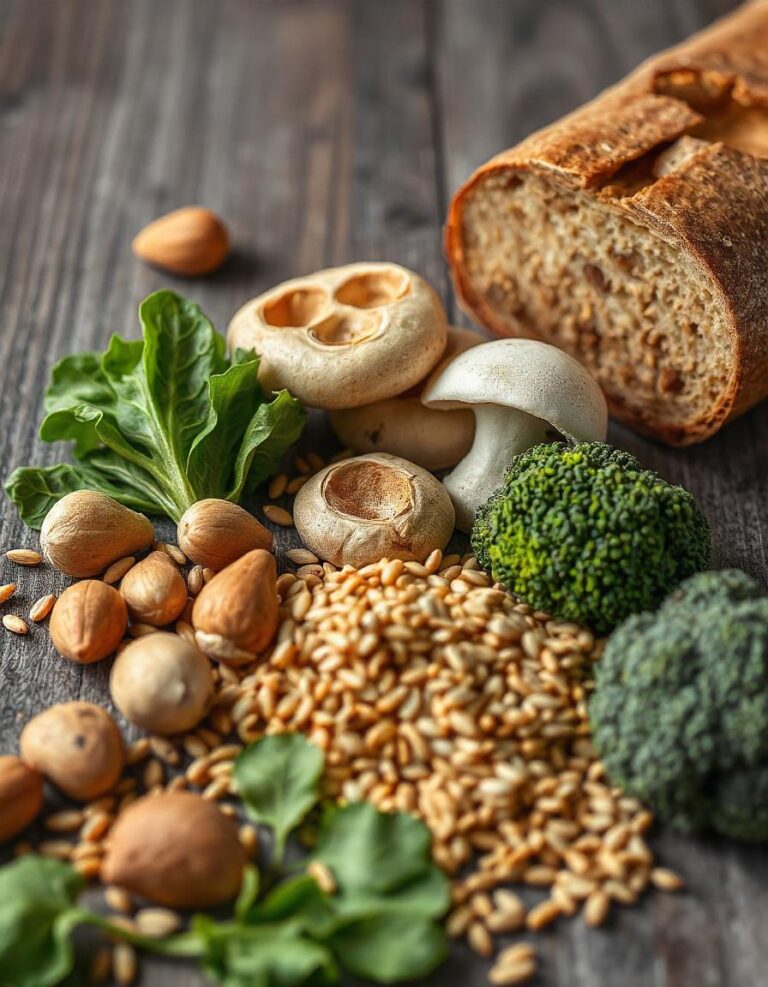Best Zinc-Rich Foods for Vegetarians: Your Complete Guide in 2025

Zinc is an important dietary mineral used in the body for a variety of roles, including immune support, skin health, and cell division. Nevertheless, vegetarians can find it very easy to lack sufficient zinc in their bodies since zinc is mostly found in meats. Fear not! This general source of information reveals rich zinc sources for vegetarians and will help you to easily nourish your body.
Why Is Zinc Important?
Zinc is an essential mineral involved in various bodily functions, including:
Maintaining good health through a healthy immune system
Skin and wound healing.
Development supports
Improving the qualities of taste and smell
Daily Recommended Intake
Men (19+ years): 11 mg/day
Women (19+ years): 8 mg/day
Pregnant Women: 11 mg/day Breastfeeding Women: 12 mg/day
Zinc Content in Popular Foods
- Pumpkin Seeds: 2.9 mg
- Chickpeas: 2.5 mg
- Quinoa: 2.0 mg
- Tofu: 1.8 mg
- Spinach: 1.4 mg

Quick Look
| Food | Zinc Content (mg per serving) | Benefits |
| Pumpkin Seeds | 2.9 mg (1 oz) | High in magnesium and antioxidants |
| Chickpeas | 2.5 mg (1 cup, cooked) | Rich in protein and fiber |
| Quinoa | 2.0 mg (1 cup, cooked) | Gluten-free, contains all essential amino acids |
| Tofu | 1.8 mg (1 cup, cooked) | Excellent plant-based protein source |
| Spinach | 1.4 mg (1 cup, cooked) | Loaded with iron and vitamins A and C |
Top Best Zinc-Rich Foods for Vegetarians
1. Pumpkin Seeds
Pumpkin seeds are packed with zinc, and in their _Context-Considered-Snack_ format, they’re ideal for the modern world of fast-paced living.
Zinc Content: 2.9 mg per ounce.
Benefits: It is rich in magnesium, antioxidants, and good fats.
How to Enjoy: Mix them into salads or yogurt, or have them roasted plain or lightly seasoned.
2. Chickpeas
Hummus and curry lovers will be happy to find this versatile legume included in the menu.
Zinc Content: 2.5 mg per cup (cooked).
Benefits: Good for health as they contain protein and fiber, hence helping in digestion.
How to Use: Sprinkle liberally over hummus, mix into salads, or stir into any stew you happen to be making.
3. Quinoa
Quinoa is a complete food and a very good source of zinc for people who do not eat meat.
Zinc Content: 2.0 mg per cup (cooked).
Benefits: Healthy, low in gluten, and perfect for cooking.
How to Prepare: Instead, use the quinoa as a base in a grain bowl or on the side.
4. Tofu
Tofu is part of the vegetarian diet, and it is rich in protein as well as zinc.
Zinc Content: 1.8 mg per cup.
Benefits: The recommended product provides a portion of daily protein and has minerals needed for serving.
Pro Tip: Use in stir-fries or soups, or use as a marinade and toss the vegetables on the barbeque for added flavor.
5. Spinach
While it is not as high in zinc as some of the other foods, spinach is still a delicious way to add some healthy nutrients to your daily meals.
Zinc Content: 1.4 mg per cup (cooked).
Benefits: Sources of iron and containing essential vitamins for the body.
Best Pairing: Use with other zinc-containing seeds to have a healthy meal.
Conclusion
Operation debilitating the Civil War: it particularly brands with a banana, other platforms such as foliage by preserving, and philodendrons all of themselves by, they do something. Include zinc-enriched vegetarian foods such as pumpkin seeds, chickpeas, quinoa, and tofu in your daily diet. Soak your foods, sprout them to increase the amount of zinc you absorb, and try to eat the zinc-filled foods with proteins. There is no reason why you cannot receive all of the nutrients you need by following a vegetarian diet with just some little modifications.


